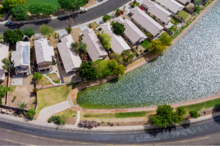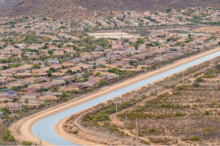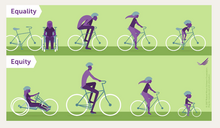
Research
|
|
Adverse Childhood Experiences: Policy and Program Review This policy and program review takes a look at a few effective, unique, and innovative policies and programs that states are employing to reduce or mitigate the impact of Adverse Childhood Experiences (ACEs). For this review, researchers considered the top six most challenging ACEs in Arizona as compared to other states. |

|
Untangling Housing Affordability & Groundwater Regulation This explainer takes a look at the updates to the Certificate of Assured Water Supply and how it will impact housing affordability. To ensure long-term water supplies for current residents, the state has imposed limitations on some new housing subdivisions and other types of development. |

|
New Phoenix AMA Model Shows Limits of Groundwater as an Assured Water Supply The State of Arizona has released a new 100-year groundwater model for Greater Phoenix, showing that the area’s groundwater is fully allocated. While the model results will not impact cities, towns, and private water providers that have a Designation of an Assured Water Supply (the vast majority of Phoenix-area communities), the model results may have implications for the patterns and rates of new home development. |

|
Northern Arizona Water Affordability Study Access to safe, reliable, affordable drinking water is the foundation of public health, economic opportunity, and quality of life in any community. Yet, significant challenges associated with providing and maintaining this access exist across Arizona, perhaps most acutely on Native American reservations and in small, physically isolated rural communities across the state. |

|
Morrison Institute Housing Research Arizona Community Foundation generously funded Morrison Institute for Public Policy to examine issues related to housing insecurity in Arizona. On this page, you will find all of the Morrison Institute research conducted as part of this project. New research will be added throughout 2021 and 2022. |

|
Arizona Town Hall: Equity for All Arizonans |

|
This summary is intended to be a quick reference guide for voters as they consider questions that will be on the November 2022 ballot.
|

|
Examining the Ease of Voting in Arizona There is a tension “between safeguarding the integrity of the vote and ensuring broad participation,” but it is larger structural forces – economic development, history, culture – that seem to determine the level of election turnout and fraud. At the same time, small procedural changes can increase participation somewhat or effectively disenfranchise some of the population. |

|
Bridging Success: An Evaluation of a Program for Foster Care Alumni Arizona State University’s (ASU) Bridging Success program, launched in 2015, is a campus-based support program for students with a background in foster care, also known as Foster Care Alumni (FCA). The program is housed within ASU’s School of Social Work, which is part of the Watts College of Public Service and Community Solutions. |

|
Arizona Town Hall: Mental Health, Substance Use, and Homelessness Mental illness, substance use and homelessness impact people from all walks of life. The effects of these issues extend far beyond the individual — negatively affecting loved ones and threatening public health and safety. In Arizona in 2020, there were at least 11,000 people experiencing homelessness. Of those individuals, roughly 1,700 had a serious mental illness, and about 1,900 chronically used substances like drugs and alcohol. |